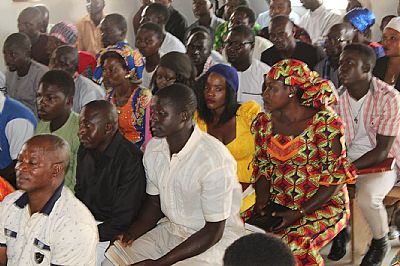Volunteers continue to find rising HIV infections and college students who are in denial about the reality of HIV and AIDS in their communities.
 During July 0.62 per cent of people our volunteers tested in churches turned out to be HIV positive. In June 1.1 per cent tested positive. Before that volunteers rarely came across people testing positive.
During July 0.62 per cent of people our volunteers tested in churches turned out to be HIV positive. In June 1.1 per cent tested positive. Before that volunteers rarely came across people testing positive.
So, what has changed? International coordinator Tassie Ghata explains the range of factors. She says Nigerians see HIV/AIDS as part of history from the 1990’s and not something that is in society now.
As an example, she shares about two students who tested positive. “They go to the same church near a Jos university campus. They couldn’t believe they have HIV; it too some time to convince them to enrol for drugs at the local hospital and persuade their partners to also test.
“HIV as an issue is no longer talked about in Nigeria. It is harder to get test kits and they are more expensive. Partly this is because Western charities and medical organisations are withdrawing from our country as they perceive HIV is solved.
“Our government depends on their outside support to tackle HIV, and can’t do so alone, as HIV/AIDS is just one of many major problems in Nigeria that the government is dealing with.”
Six volunteer teams - from Jos, Yola, Mangu, Michika, Biu and Potiskum - visited 13 churches during July. They shared the gospel with 3,461 people of whom 968 chose to be tested and know their HIV status. Six people tested positive.
Most of those who tested – 900 - chose to be open with their status and joined life sharing support groups in churches able to support these groups.
Significant numbers made a Christian commitment; 107 were new converts while 708 rededicated their lives to Christ and promised to live according to gospel values.

